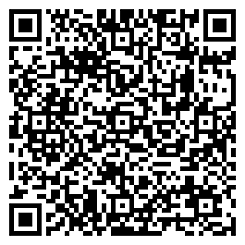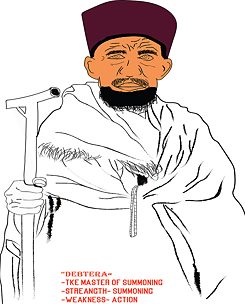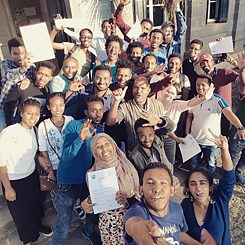Addis Ababa, Ethiopia
Arada - The Quest for Omniscience

 © Enter Africa
ARADA
© Enter Africa
ARADA
In Addis Ababa's location-based game “Arada – The Quest for Omniscience”, players can only solve tasks by combining the strengths of the individual characters. A game about cohesion.Scan the QR Code with the Enter Africa App and start playing!
Addressing Questions of Identity
Ethiopia is made up of more than 80 ethnic communities. This diversity can be a big asset, but in recent years, ethnic awareness has risen – sometimes at the cost of emphasizing commonalities and unity. The location-based game addresses this issue: The player is not one character but tries to become omniscient – which can only be achieved by combining the values and powers of different communities and generations – represented by individual characters.
The Story
The story takes place in a decade past the 3rd True Millennia, when ignorance has swept across humanity. Conflicts are a staggering high; division through differences is the new trend. Nations are at risk and Addis Ababa is at the center of it all. In order to survive this epidemic of ignorance (Faraism), people must go through all they were, all they are, and all they will be - they need to become Arada, a mindset, a state of awakening, a state of omniscience, and an underground community.
The community of Arada represents a secret society of the "New Being", people living under the Arada Order. Here, life is seen as the most precious and devine thing in the world, and identities are abstract concepts, a set of values that only exist in the imagination. Depending on the circumstances and context, Aradas change their identities like picking a cloth from the closet for a particular event. Thus, the purpose of life under the Arada Order is to explore as many identities as possible in one's lifetime. Hence the player is not just playing one character, but attempts to become omniscient by embodying multiple identities and solving social issues by combining the values and powers of different cultures, communities and generations, represented by spirits.
Collecting Spirits and Solving Problems
Playing the game involves two phases: First, the player engages with the city and goes to different locations to collect characters – each of which has a different special ability. In a second step, one has to solve tasks in five different substories. For example, there is Debtera, an old wise man, who has the power of summoning but is not good at taking action. So, he needs the assistance of another person to solve the tasks. A special feature of the game is the possibility to trade characters: If you don’t have a certain power, you need to find someone who has already collected it. And that’s where the minibus line comes in: People in line who are playing can choose if they want to work together.
What makes the game special?
The game “Arada – the Quest for Omniscience” shows the players that you cannot live separately, but you need all characters to address pressing issues. Through the places one gets to visit and the idea of different strengths and values of each character, the player will learn about cultural history, legends and about the power of unity. The clear message of Arada is: embracing differences and working together is the only way of becoming omniscient - which is not only relevant for Ethiopia but anywhere in the world.Interviewpartners:
Yared Endale is a 24-year-old student from Addis Abeba, currently studying construction and technology management. In his leisure time, he is interested in video games, films, photography and video editing as well as exploring new softwares. When playing games, Yared has often asked himself: “What if those games were invented by Africans and showed our cities, people and culture?” He is convinced that young Africans should tell their own stories and show their visions of the continent to the world – his motivation for participating in Enter Africa.
Dagmawi Bedilu is a software engineer, entrepreneur and game-thinking activist with an appetite for both, science and arts. He has worked as a senior software architect for Ethiopia’s biggest IT company, designing and developing location-based systems. As an entrepreneur, he has founded the social enterprise gursha.org and co-founded the game-thinking company Chewata Awaqi. In 2017, he was a speaker at the Gamescom in Cologne, Germany. Dagmawi is as a Rotaractor, Toastmaster and describes himself as a positive thinker. He is not only part of the Addis Abeba team, but also a game and experience design expert for the entire Enter Africa project.
Team:
Abel Adane, Abenezer Masresha, Aman Teklay, Asaye Nigussie Gebretsadik, Awet Hailay, Beamlaku Amare, Binyam Girma, Brook Tewelde, Dagim Abebe Dubale, Dagmawit Endale, Elham Mahmmud Mohammed, Ermias Bunaro, Friehiwot Kindie, Hailemichael Simesh Ayele, Israel Tesfu Yilma, Kidus YohannesKirubel Girma, Mihret Redda, Mohammed Jemal, Nathnael Getachew, Nahom Teklu, Nathnael Moges, Nathnael Sisay, Samuel Minale, Thomas Tesfamichael, Womiso Wodebo, Yared Endale Yirdaw, Yohannes Tarekegn Asmare, Yonathan Seyoum


